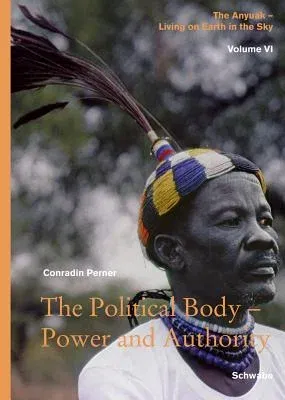The monograph on the history and culture of the Anyuak is the result of
more than five years of fieldwork (1976-1983). It is a well-documented,
detailed and passionate description of an African people's spiritual and
material world, their culture and history. Myths, oral traditions,
stories, maps, genealogies, records of songs and music as well as a
great number of photographs invite the reader to join in the journey
through the universe of the Anyuak in order to make own discoveries or
simply to participate in the spiritual adventure. The Anyuak live on
both sides of the border between South Sudan and South-western Ethiopia.
They are relatives of the better known Shilluk, Dinka and Nuer, but have
turned from cattle owners into fervent agriculturalists. The Anyuak are
a highly intellectual, strong-minded and well-organised people who have
created, in the middle of so-called wilderness, a centre of human
civilisation. If their socio-political system is of a particular
interest, their philosophy is equally fascinating: it centres on the
human person and governs his or her relationship not only within human
society but also with animals, earthly matters and spiritual forces.
Thanks to their stubborn, almost desperate belief in the essential
goodness of existence and the positive forces of life, the Anyuak have -
in spite of all pressures from outside - up to now succeeded in
preserving their cultural identity and maintaining their pride of being
"pure human beings". While the first four volumes of the monograph
described the sphere of the above (the sphere of transparency), the
sphere of the below (the sphere of material existence, the earth) and
the space between them (the sphere of human self-awareness and the
period of personal existence), the fifth volume focuses on the Anyuak
village and its physical and social structures and opens the wide and
lively sphere of collective existence. A fundamental part of the
community's socio-political organisation is the "Sphere of Justice" as
the tool which holds society together and allows it - in spite of all
tensions and ruptures - to survive as one existential unity. Volume VI
describes the political system which unites the various layers of
society as well as its individual members, provides inner cohesion and
defends it against attacks from the outside. The strong political
self-awareness of the Anyuak finds its expression in the powers of
village headmen and of an absolute ruler, a king, whose divine
immortality symbolises and incorporates the community's spiritual
forces, its bold aggressiveness and its determination of self-defence.
Because of the author's close friendship with the late charismatic King
Agada, this sixth volume of the Anyuak monograph is of substantial
significance for the comprehension of "divine kingship" in the Sudan.

